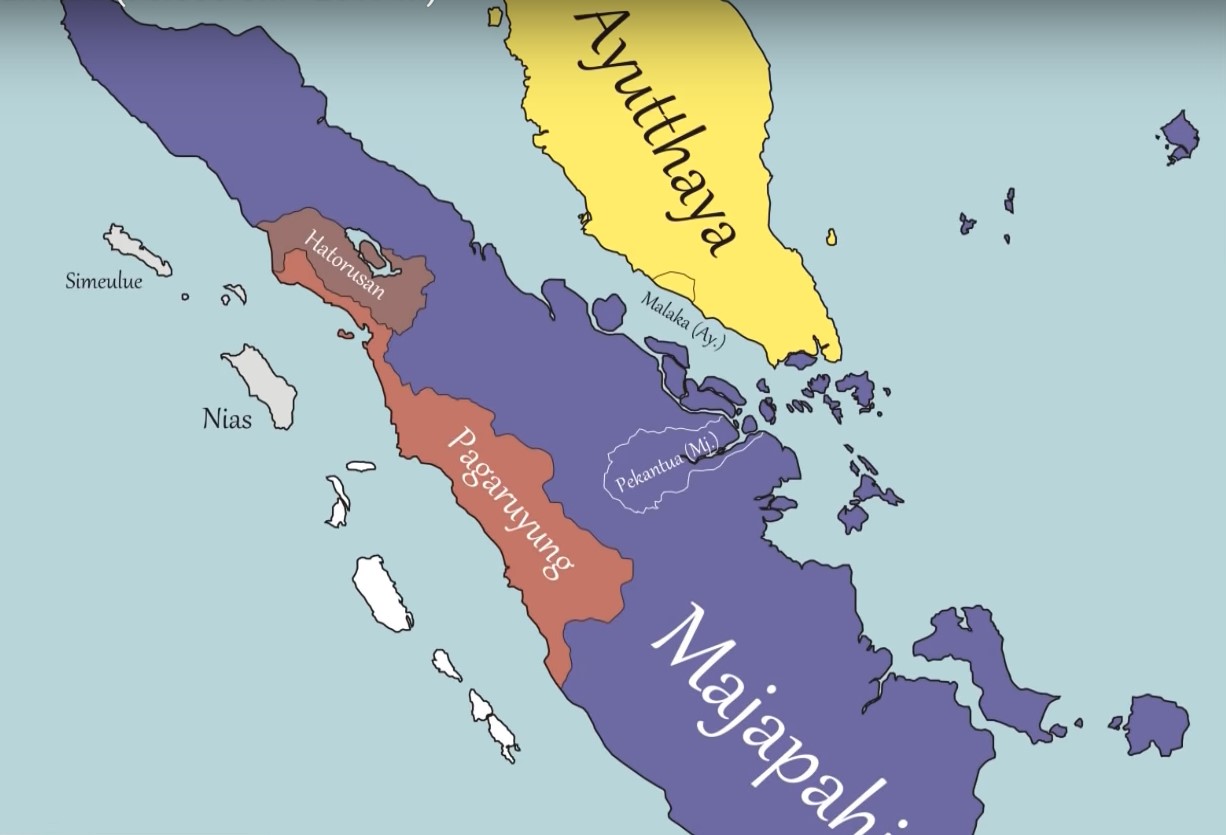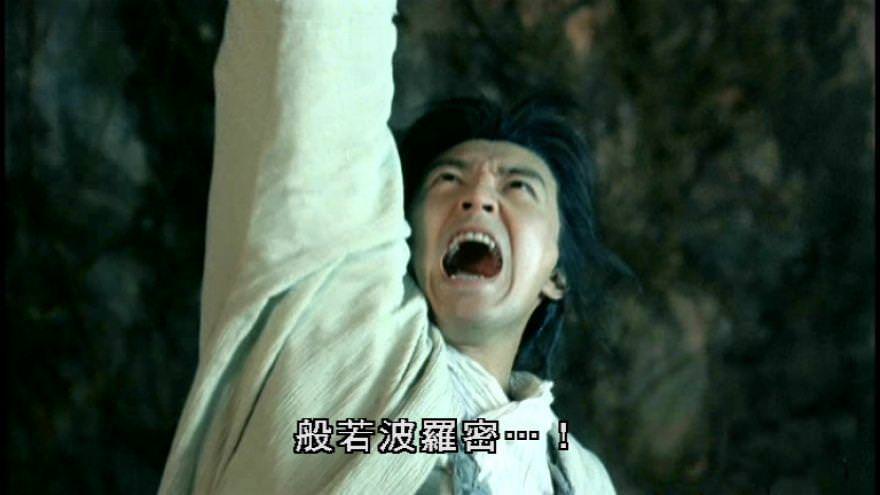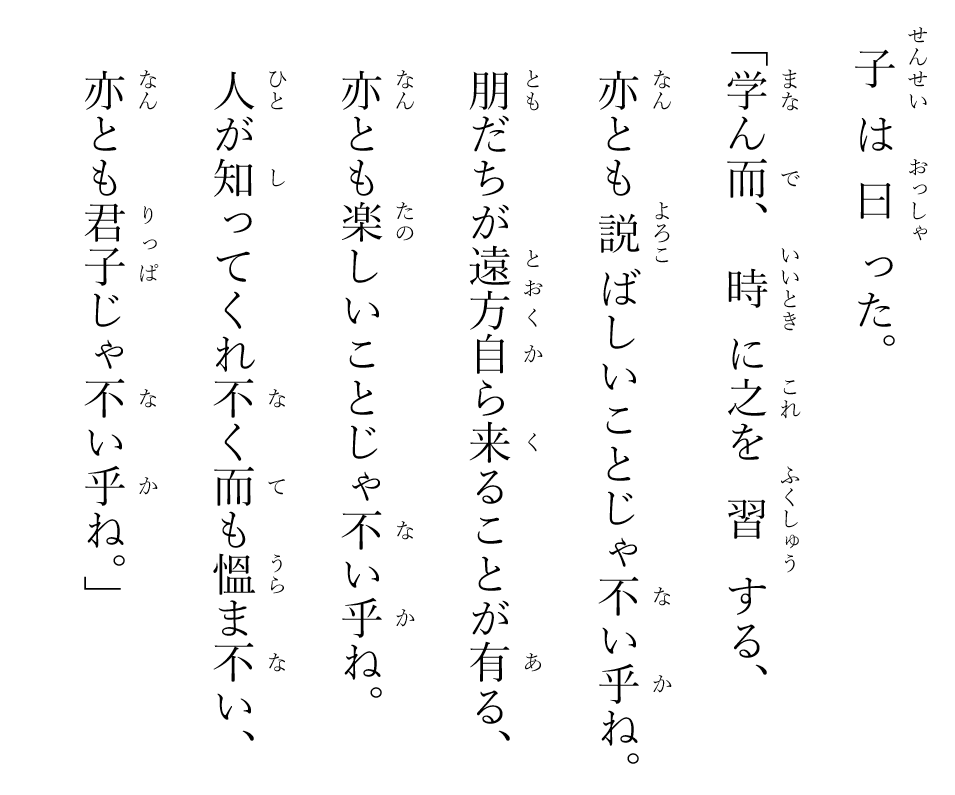Yongle's warning to Ayutthaya (1407)
Sunday, 20 November 1407. The envoy dispatched by Chao Nakhon Intharacha 昭・祿羣・膺哆囉諦剌, who came to offer tribute of tamed elephants 馴象, parrots 鸚鵡, peacocks 孔雀 and other stuffs, was received by the Ming court. Zhu Di 朱棣 seized the opportunity and asked the tribute team to relay some messages back to their king.
Zhu Di's warning to King Intharacha was preceeded by two following statements:
- the return 還 vessel 舟 of the Cham mission 占城國遣使朝貢 was drifted to Pahang 至湓亨國 as a result of bad weather 海上颶風. The Ayutthaya forces who happened to station there, bullied 凌 the Pahang 湓亨 administrations to surrender the Cham envoys to them 索取占城使者. The Cham envoys were imprisoned 羈留 by the Ayuttaya and were not allowed 不遣 to return to Champa.
- the kings of Samudera 蘇門答剌 and Melaka 滿剌加 reported that they had been attacked by Ayutthaya 暹羅強暴發兵. Their seals 印 and enfeoffment edicts 誥, which were awarded by my administration 所受朝廷, were seized 奪. And their people were frightened and cannot live peacefully 國人驚駭不能安生.
Then Zhu Di stressed to King Intharacha that Champa, Samudera, Melaka, and Ayutthaya are all Ming subordinates of equal status 比肩而立, and that Ayutthaya should not forcefully detain subjects, or seals and enfeoffment documents belonging to these states.
He quoted a phrase “Heaven's way blesses the good and punishes the wicked 天道福善禍淫” from Shangshu 尚書 to show that good rulers like Shang Tang 商湯 was favored by the Heaven, and bad ones like Xia Jie 夏桀 was detested and bound to be destroyed. And he reinforced this quote with a recently concluded military campaign in Annam, in which the Lê 黎 family, who usurped the throne from the Trần 陳 family, was defeated and captured. King Intharacha was asked to learn from the Ming-Annam war and was ordered to return the envoys, seals, and documents, to their respective states.
- In a Ming Shilu 明實錄 entry dated 12 October 1377 (洪武十年九月十日), a certain Ayutthaya prince named Ying 膺 was sent to court of Ming. He was the same person warned by Yongle 30 years later in 1407. The Julian date mentioned by Wade for this 1377 entry is printed as 洪武十年九月一日 or 3 October 1377. Wade's date is incorrect since the hexadecimal marker for 12 October 1377 is \(\sigma = 2 + 5(2 - 10) =-38 =22\;{\rm mod}\;60\)乙酉 (22).

Chao Nakhon Intharacha (literally, Indraraja, Lord of the State). Prince Intharacha represented his king and he headed the Ayuttaya tributary missions to Ming China in 1374, 1375, 1377 and 1384. See Charnvit Kasetsiri (1976) The Rise of Ayudhya, Oxford University Press, pp. 112 - 113.
Ming Shilu's phoenetic rendering of the king's name can be approximated to Chao 昭 เจ้า Nakhon 祿羣 นคร Inthira 膺哆囉 thirat 諦剌. Intharacha อินทราชา or Inthira-thirat is the Siamese spelling of Indra-dhirāja. Intharacha's father was King Borom Rachathirat I (1370 - 1388), who sent him to the Ming court in 1374, 1375, 1377, and 1384.
See C. Baker and P. Phongpaichit (2022) Melaka and Ayutthaya in the long 15th century feudal relations, tribute, and magical realism, Journal of the Siam Society, 110(2), p. 109, Footnote 14.
- The text in Ming Shilu reads:
(永樂五年冬十月)辛丑・暹羅國王昭・祿羣・膺哆囉諦剌,遣使奈婆即直事剃等奉表貢馴象、鸚鵡、孔雀等物。賜鈔幣、襲衣。命禮部賜王織金文綺紗羅表裏。
先,占城國遣使朝貢既還至,海上颶風漂其舟至湓亨國。 暹羅恃強凌湓亨,且索取占城使者,羈留不遣,事聞于朝。又,蘇門答剌及滿剌加國王並遣人訴暹羅強暴發兵,奪其所受朝廷印誥,國人驚駭不能安生。
至是賜敕諭昭・祿羣・膺哆羅諦剌曰:占城、蘇門答剌、滿剌加與爾,均受朝命比肩而立,爾安得獨恃強拘其朝使,奪其誥印。
天有顯道福善禍淫,安南黎賊父子覆轍在前,可以監矣。 其即還占城使者及蘇門答剌、滿剌加所受印誥,自今安分守禮,睦隣境,庶幾永享太平。夜,月犯軒轅南第五星。
“天道福善禍淫” is a phrase from 《尚書・商書・湯誥》, it was used by Shang Tang 商湯 to describe the destruction of the Xia dynasty. 天道福善禍淫,降災于夏,以彰厥罪。
黎賊父子 is a reference to 黎季犛 Lê Quý Ly and his son 黎漢蒼 Lê Hán Thương. They were defeated and captured by Yongle's army in the Ming–Đại Ngu War 大明-大虞戰爭 (1406-1407). Lê Quý Ly reverted his surname to the ancestrally correct family name of Ho 胡 after he became the first emperor of the Dai Ngu dynasty. Lê believed his sinic ancestor founded the pre-Xia dynasty of Yu 虞 in China. This is also the reason why his dynastic name was Dai Ngu 大虞.






Comments